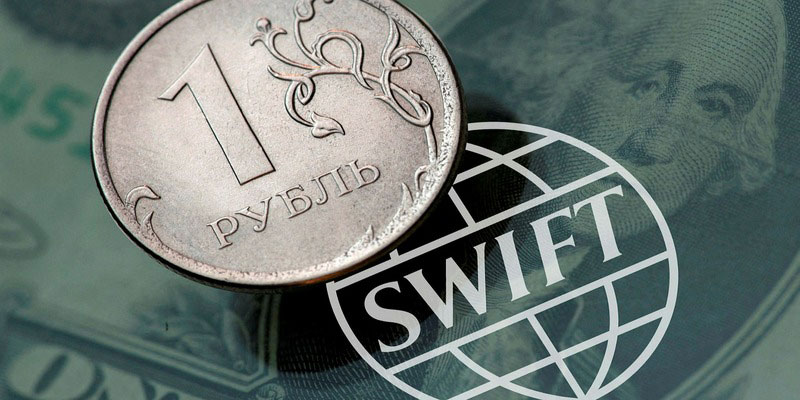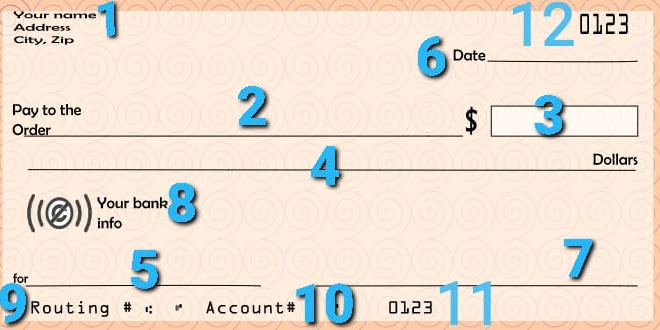SWIFT, or the Society for Worldwide Interbank Financial Telecommunication, is a group that provides resources for safe, effective communication between banks and other financial institutions worldwide.
The billions of messages sent daily between institutions via SWIFT ensure the secure and timely completion of a wide range of economic activities, even though SWIFT does not execute transactions or retain assets.
SWIFT has been around for 50 years and has expanded to include over 200 nations and territories, as well as 11,000 organizations. It plays a vital role in the international financial system.
Sanctions and SWIFT's Organizational Structure

SWIFT is a non-partisan group that acts in the best interests of all its participants. For this reason, it does not take any specific geopolitical stances on the global stage. Still, the organization is governed by the central banks of the Group of Ten (G10) states, and it works under Belgian—and hence European Union (EU)—law.
Many jurisdictions can impose sanctions on a country or an individual, and SWIFT cannot pick and choose which jurisdiction's penalties to adhere to. However, due to the organization of its board of directors, SWIFT must respect EU legislation; if the EU imposes sanctions, SWIFT must comply.
Methods of Operation for the SWIFT Sanctions System
European Union restrictions established in 2012 prevent SWIFT from providing financial communications services to certain Iranian institutions. After being removed from the EU's list, several of these banks were reconnected to SWIFT at the beginning of 2016.
In this case, banks disconnected from SWIFT would be compelled to use another substantially less prominent alternate method of communication with other financial institutions around the globe. For example, the SWIFT restrictions had a devastating effect on international commerce with Iran since foreign buyers of Iranian commodities had a hard time arranging payment.
This scenario highlights the efficacy of SWIFT sanctions as an incentive or deterrent in geopolitics. Since Iranian banks could not process international financial transactions, Iranian firms and people were severely hampered in their ability to participate in global commerce.
Possible Consequences of SWIFT Sanctions
The SWIFT cutoff as a tool in international affairs is not without significant hazards, as illustrated by the case of Iran. While Iran was shut off from many elements of global trade, the impact of these sanctions extends to the nation's trading and economic partners elsewhere in the globe.
The severity of the knock-on effects of economic sanctions will depend on the degree to which the targeted country is embedded in the international monetary system.
After Russia annexed the Crimean Peninsula from Ukraine in 2014, there were calls for the country to be banned from the international financial system SWIFT.
3 These communications picked back up in early 2022 after Russia invaded Ukraine. 4 Russia is a far larger economy and much more globally linked than Iran, which is a significant distinction between these instances and Iran.
Alternatives to SWIFT Sanctions

Critics of SWIFT restrictions say that even if banks or a whole country are shut off from the financial network, criminals would still find a way to launder money. Adding this step serves to complicate things further. There are indeed alternatives to SWIFT, but they could be more efficient. Following the incidents above in 2014, Russia built its own SWIFT alternative, significantly reducing the effectiveness of a SWIFT embargo.
Analysts have argued that bank penalties may be more effective than blocking off organizations' access to SWIFT. A more immediate and catastrophic impact may be made by going after financial firms that function as agents for governments and affluent individuals.
What Is The Procedure For SWIFT Sanctions?
Financial institutions may be banned from utilizing the SWIFT messaging service at the discretion of the Society for Worldwide Interbank Financial Telecommunication.
The replacement solution would inevitably be slower, less secure, and less connected, but it still compels these institutions to make do with it.
While financial institutions are still free to facilitate transactions, they may face significant obstacles due to SWIFT penalties, such as restricted access to the SWIFT platform.
How Are SWIFT Sanctions Managed?
SWIFT is an impartial consortium that collaborates with thousands of banks across the globe. Consequently, it is governed by Belgian law, which is EU law. This means that it embraces EU sanctions.
Why Do SWIFT Sanctions Cause Problems?
The efficiency of the SWIFT sanctions is a drawback. As was previously indicated, neither a country nor a financial institution may be banned from using SWIFT. Particularly in recent years, as cryptocurrencies increasingly permit cross-border transactions, institutions may be able to develop workarounds.
Additionally, SWIFT penalties might be difficult to confine to a particular nation or collection of institutions. Due to the worldwide structure of the financial industry, punishing one country severely affects others as well.




